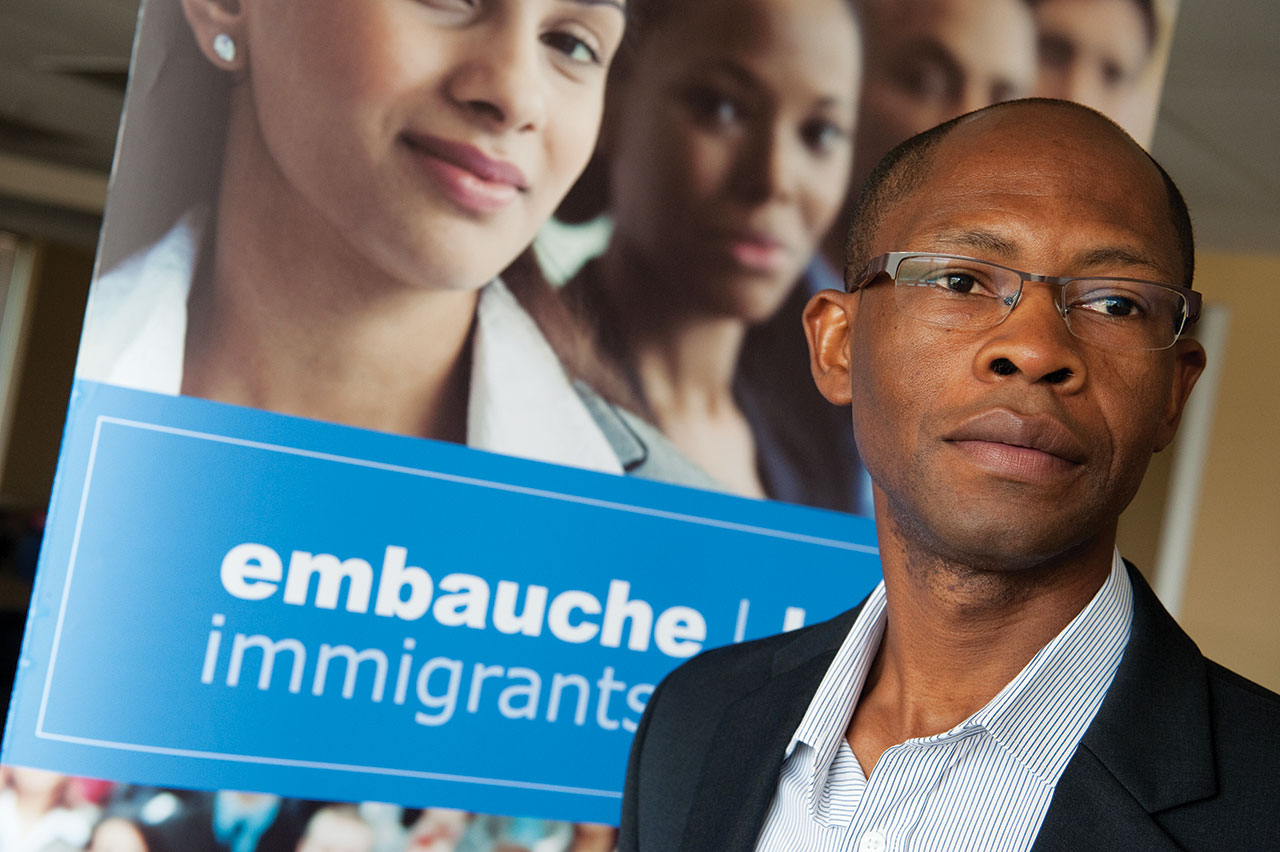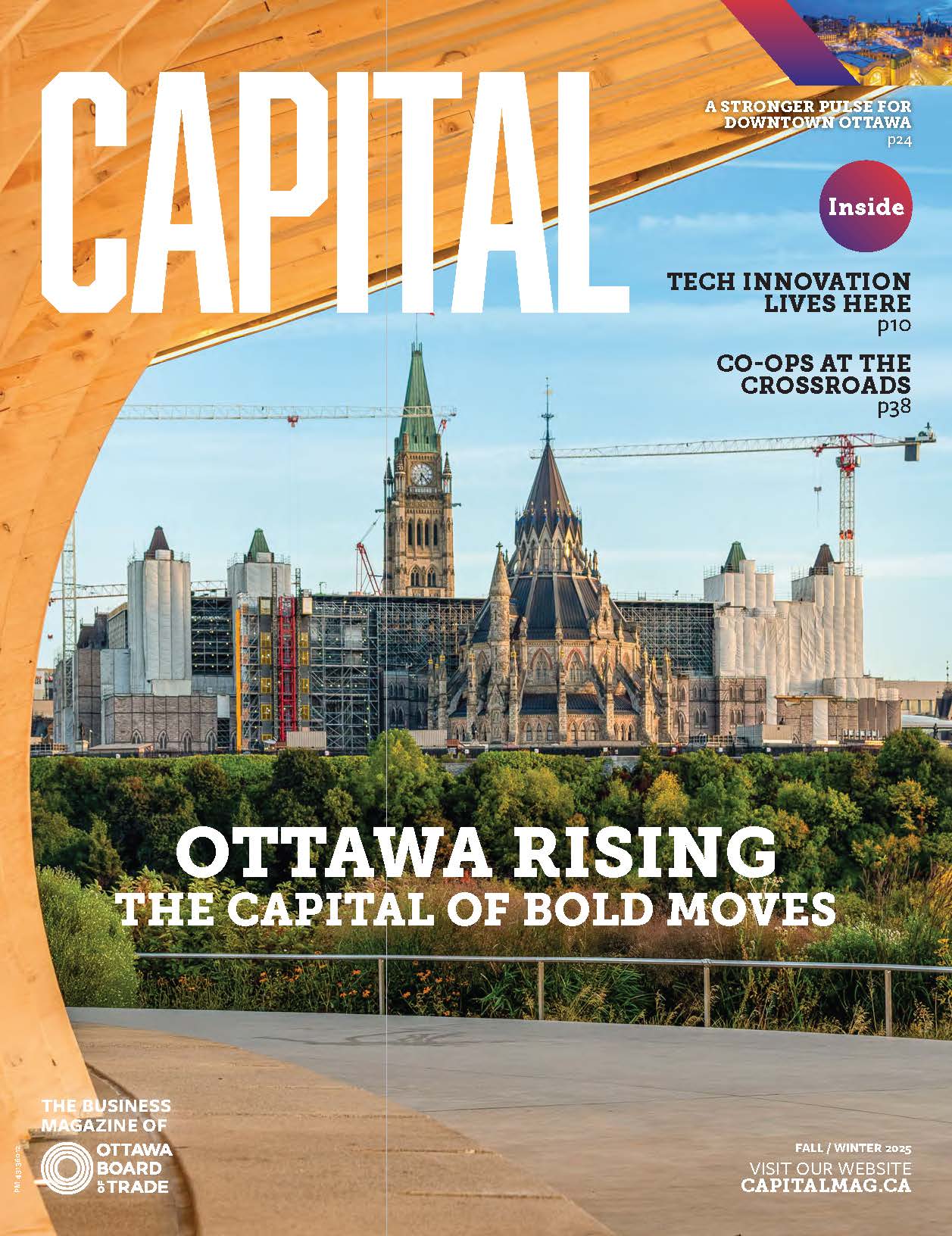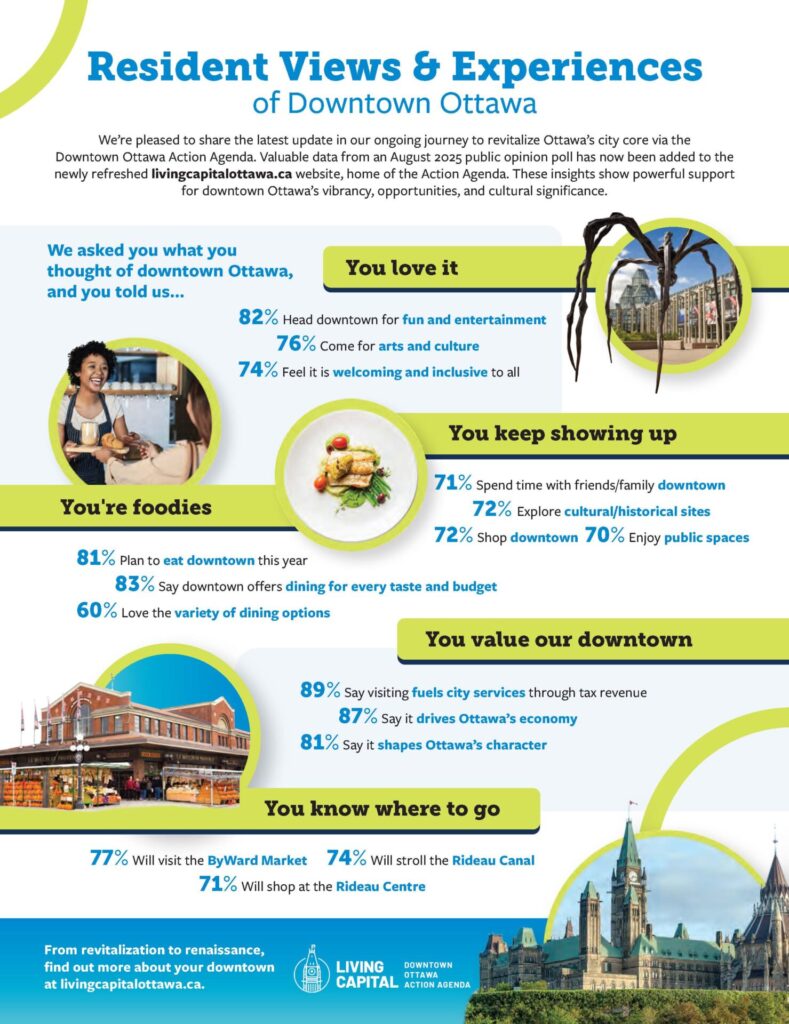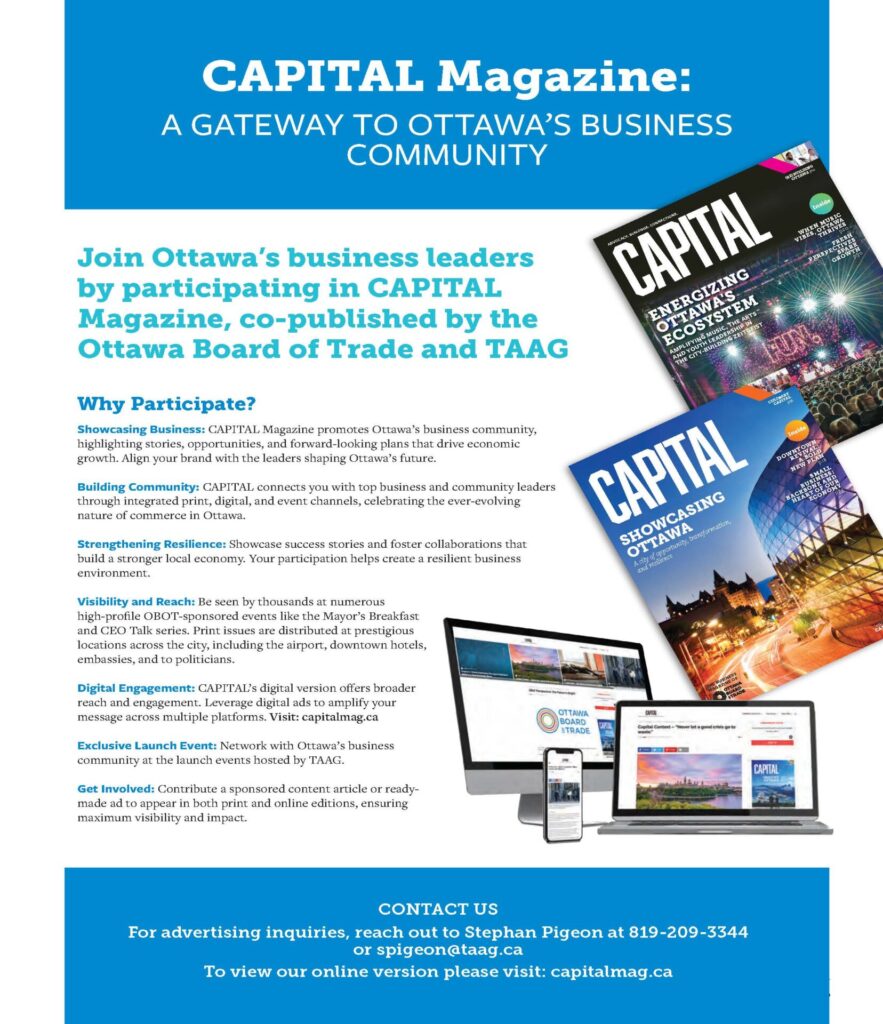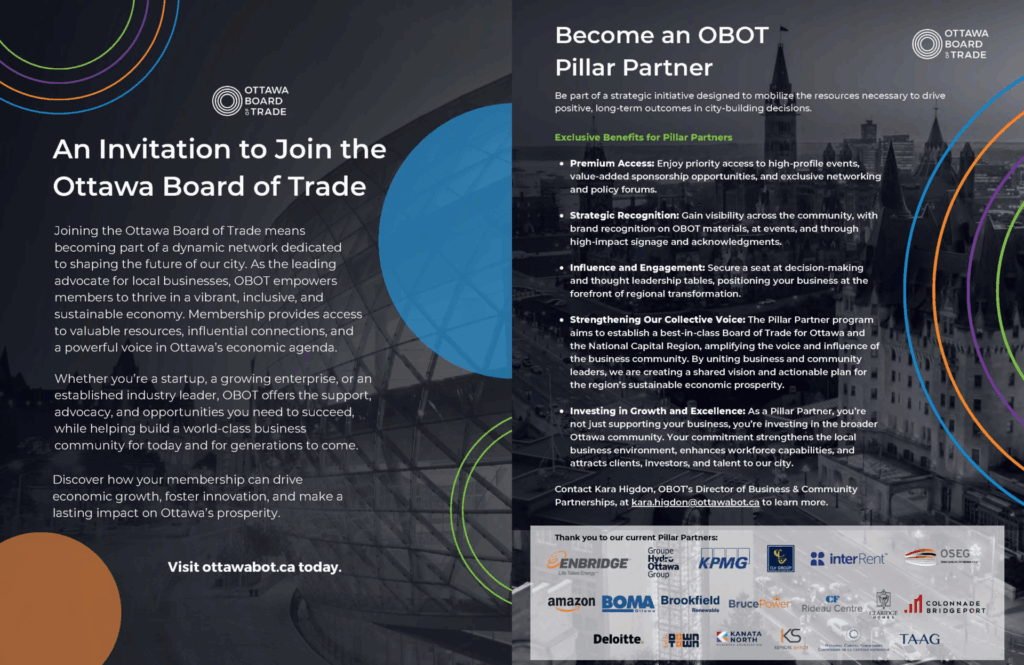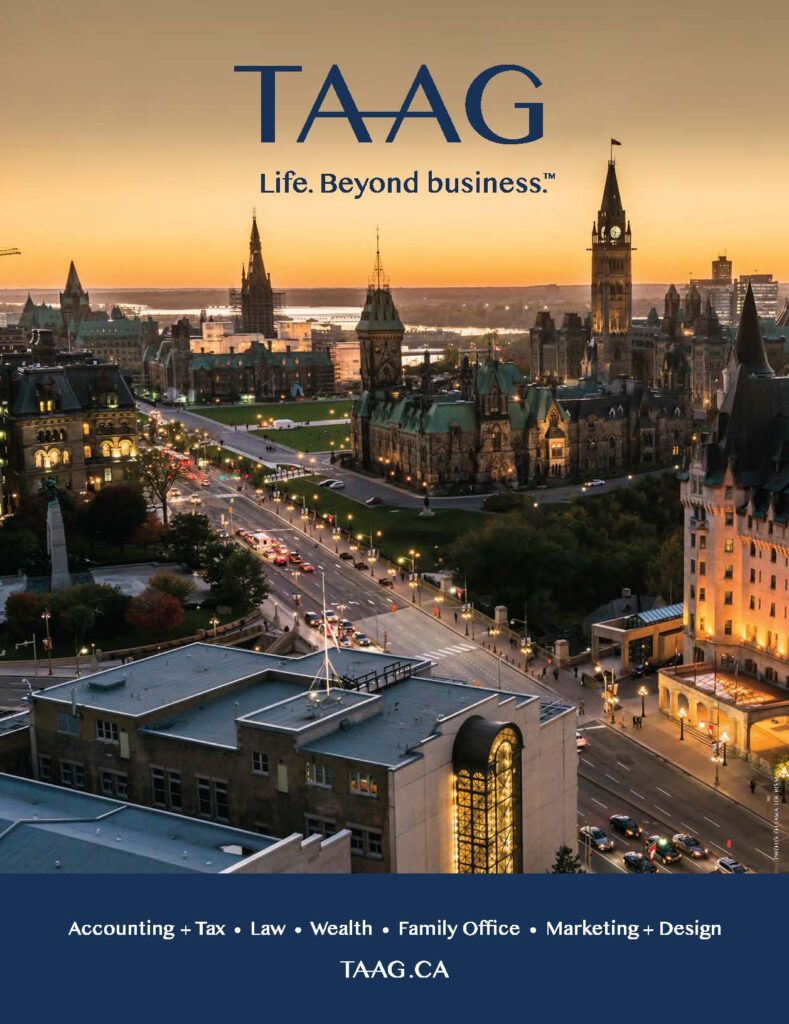Feature: Beyond Matchmaking
How Ottawa can close the gap between vacant jobs and immigrants with the skills to fill them
By Sara Caverley
Ottawa attracts highly skilled immigrants from around the world, yet many face barriers to employment in the sectors where they’re trained and educated. At the same time, local companies report difficulties finding qualified workers for jobs that sit vacant. Why the disparity? Most hiring managers aren’t looking beyond credentials that don’t look familiar or experience that wasn’t built in Canada.
Henry Akanko is a native of Ghana. He moved to Canada 15 years ago and has helped hundreds of Ottawa employers hire immigrants for skills-appropriate work.
“When educated people arrive from abroad, they aren’t just an easy solve for labour shortages,” says Akanko, director of Hire Immigrants Ottawa. “They help local companies do business with the world.”
In a city focused on diversifying the local economy, we can’t overlook the international networks and cultural competence that skilled immigrants bring to the workforce. Akanko points to examples of employers who understand the importance of global talent, and the need to integrate the people who possess it.
“In Ottawa’s Chinatown, banks hire tellers with backgrounds from the community it serves,” Akanko says. “That helps immigrants do business in their language.”
The Ottawa Local Immigration Partnership (OLIP)—a coalition of 60 partners and participating organizations, including Hire Immigrants Ottawa—hopes to move the needle on these issues by building community-wide capacity to attract, settle, and integrate immigrants.
“The degree to which we can attract and retain talented newcomers is crucial to the future success of Ottawa,” says Alex Munter, council chair at OLIP, and president and CEO of the Children’s Hospital of Eastern Ontario.
The statistics suggest there is lots of opportunity for this: As Canadian citizens in the making, immigrants increase productivity, pay taxes, and start businesses that hire people. In Ottawa, more than 200,000 foreign-born permanent residents form 23 percent of the city’s population, and half of new growth in its labour market. The challenge is to help match them with jobs that are commensurate with their skills.
“Employers will fill entry-level positions with skilled immigrants and give them time to prove themselves worthy of upward mobility,” says Akanko. “That doesn’t always happen. Some get overlooked for promotions. Some take jobs just to survive.”
OLIP, which Munter calls a “coalition of the willing”, aims to take a holistic look at what’s needed to help newcomers become successful. Its partners include the City of Ottawa, local universities and colleges, four school boards, employer and employee associations, settlement, social and health care providers, and regional planning bodies. Munter says a cohesive strategy for supporting newcomers needs to look across all these sectors, including—but not limited to—their education and work experience.
“When you peel the onion, there are a range of issues for newcomers, including language, unfamiliar workplace culture, lack of recognition of their education and experience from abroad, as well as the lack of access to informal networks that often lead to those all-important first opportunities,” he says.
Together, OLIP’s partners are looking at ways they can better plan, coordinate, and deliver on activities that support newcomers in all of these areas.
OLIP’s work is particularly relevant to Ottawa’s high-tech sector, where the skills gap is especially acute. Ottawa-Gatineau needs about 10,000 people to fill IT positions by 2019, according to a labour market report released late last year. Its authors, the Information and Communications Technology Council, also project that the availability of local talent will not be enough.
At the same time, Ottawa has an annual inflow of 3,100 immigrants with post-secondary education who make up a growing share of Ottawa’s science, technology, engineering and mathematics labour force: 37 percent according to the 2011 census.
Munter points out that Ottawa isn’t alone in facing a shortage of skilled labour.
“People need to remember that Ottawa is in competition with other cities to attract immigrants,” Munter says. “Cities that make it easier for newcomers to flourish will be more successful, economically and socially.”
The University of Ottawa, Bridgehead, and Pythian are among local businesses recognized for creating diverse and inclusive workplaces by matching newcomers with jobs that suit their skills. Pythian focuses on how international experience can be a positive differentiating factor for Ottawa businesses as they innovate.
“Put a dynamic team of immigrants with a shared foreign culture together on a video call and they will have amazing ideas,” says Christina Anderson, manager of global talent acquisition at Pythian. “They will find client solutions more ingeniously, more robustly.”
The global technology company based in Ottawa participates in networking events, such as a “LinkedIn-a-Thon” that was organized in November 2015 by World Skills Employment Centre, Hire Immigrants Ottawa, and Citizen and Immigration Canada. More than 40 of its employees in Canada are native to another country.
“There’s a huge role for companies to change their hiring framework,” says Anderson. “The resulting abilities, not the foreign credentials, should play a central role.”
She says immigrants can also have difficulty getting security clearance because of difficulties accessing information from abroad. With a heavy reliance on the public service for jobs in Ottawa, private businesses can open up many doors. Other local jobs with widely discussed labour shortages include skilled trades workers, technicians, drivers, and executives.
Matching skilled newcomers to these positions, says Munter, is in everyone’s interests.
“When newcomers come here, they contribute to life in this city,” he says. “That’s good for everyone.
Sara Caverley has worked at the confluence of communications and public policy in Ottawa for 10 years. She specializes in projects that address urban, Indigenous, and sustainability issues.
Help Newcomers Succeed
Help them enter the workforce by recognizing their added value and how your business could benefit from global skills
Help them build their local business network by attending events
Help them build their new life in Ottawa by connecting them to valuable services in your community
